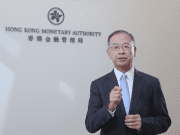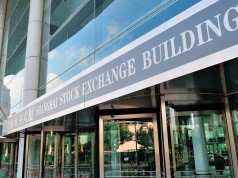8 Reasons Why Wealth Management has Become Important in Capital Markets
To many, wealth management is a consumer-based business. Private Banking, Financial Planning, Portfolio Management, Asset Management, Estate Planning, Equities, Bonds, Unit Trust, Options, Leverage and so on. Capital Markets seldom appear in wealth management discussion.
Read More: What is Capital Market
Did You Know
In Singapore, every financial advisor has to pass the CMFAS regulatory examinations. CMFAS stands for Capital Markets and Financial Advisory Services
But what many have not realised is wealth management has become an important player in the capital market. Why? Here are 8 Reasons:
” $1 Million in 1980 is $100,000 in 2015, in USD and adjusted for inflation ”
~ Bassam Salem, CEO Citi Private Bank Asia Pacific
No. 1 Accessibility to Global Financial Markets
What used to be a high-entry barrier, lucrative, high-risk, protected from consumers, exclusive and expensive services is now more accessible.
More people today (2015) can participate in capital market activities such as Pre-IPOs, IPOs, Early Stage Investments, Direct Equity Investment. There are many avenues to do so. Banks, Investment Firms, Fund Management Co, Private Equity and Online Brokerages and Financial Platforms.
No. 2 The Development of Technology & Information

Technology & Information advancements have allowed more organised & relevant financial information to flow faster. Knowledge or information one do not have, can now be requested within hours, minutes or even seconds.
Quick access to internet, knowledge base and hundreds of popular financial platforms provide financial market participants and even ordinary people to gather financial information & insights.
No. 3. High Financial Literacy Rate
With an increasingly literate and educated global workforce, everyone is more capable of understanding and knowing financial matters. This includes making elementary investment decisions. For investors who have bigger risks appetite, they seek higher returns where traditionally, only the professional & sophisticated investors have access to.
For example, FX & options trading which used to be available, reserved for the sophisticated or the big financial brokerage & trading firms in the 1990s, have made its way to students’ dormitory.
No. 4 Developed Countries with Low Interest Rates

As developed countries growth slowed and demand for savings & loans decrease, savers and depositors increased while interest rates declined. At the same time, investors are always seeking higher returns.
The traditional wealth management plan of investing in equities & bonds, or risk management through insurance and endowments pale in comparison to investments into new exciting growth story such as Apple & Alibaba.
As investors seek higher returns, higher risk capital market instruments make their way into wealth management. New Emerging Market Debts, Funds of Hedge Funds, Private Equity Funds, Structured Products, Direct Issued Credit Default Swaps, Warrants, Options make their way into wealth management products as issuers (underwriters & book runners) saw a faster and lucrative way to launch primary market equity & debt.
This skirt past sophisticated investors & institutions who often question and demand better & stricter terms.
No. 5 Efficient Allocation of Capital
By tapping onto Wealth Management funds, the global financial market created a new & efficient avenue of recycling capital.
Savers & retirees can now channel their capital into early stage capital investments that can fund business & economic activities with less government influence. Given the right outcome, savers and retirees would then receive a higher amount of returns, compensating for their risks. Given the wrong result, savers & retirees will bear the risks.
Traditionally, individuals, businesses or governments that require equity or loans are required to go through a lengthy process of due diligence.
No. 6 Shifting of Risks

With the development of emerging markets and two fast-growing financial centers in Asia (Singapore & Hong Kong), there is a vast amount of capital to tap on. Governments, corporates, businessmen and individuals have seen the new trend and readily participate in this new system, absorbing more risks while seeking higher returns.
Below are statistics of the financial market in Singapore and the enormous amount of capital to tap onto.
Singapore Financial Market 2015
- Banking Assets: $973.1 billion
- Life Insurance Assets: $142.5 billion
- Assets under Management: $1.82 trillion
- FX Daily Turnover: US$383 billion
Assets under Management in 2015 has been released by Monetary Authority of Singapore. The amount has increased from $1.82 trillion to $2.4 trillion in Singapore Dollars.
Sidenote:
- USDSGD 2014 1st of June – 1.2539
- USDSGD 2015 1st of June – 1.3560
No. 7 Larger Global Financial Market
Collectively, the global financial market is huge. The total capitalization of New York Stock Exchange alone is $19.2 Trillion while the 10 Largest Exchange in Asia total $20.9 Trillion (Data: 2014).
According to World Bank, the world generates $77.8 trillion of GDP in 2014. 8 Countries contribute 76.54% to the world’s GDP.
The larger, accessible and integrated global financial market allows Wealth Management to become an important participant in the capital market. Skipping past intermediaries or complex intermediaries’ arrangements, Fund Managers, Portfolio Managers, Analysts, Wealth Managers, Private Bankers & Investment Managers are closer to information source more than ever.
Sometimes, even Google, Yahoo, Reuters News deliver more timely information source than internal sources.
Related Articles
No. 8 Competitive Capital Market

The most significant development is the competitive capital market. Predominantly for the government, institutions, large corporates, ultra-wealthy clients and professional investors, new entrants such as smaller financial advisory firm, new investment bankers have created marketing channels to many financial intermediaries since early 2000s.
Pension funds and insurance companies used to be a great channel for the smaller players, but today, retail banking, private banking, family offices, hedge funds are examples of new marketing channels. These also allowed smaller deal size to be worked on, with bonds issuance into tens of millions and IPOs with a few million capital raised.
Interestingly, the Global Financial Crisis of 2008 were caused by investment bankers whom have created derivatives of risky debts that were then re-marketed to private and retail banks.
Sidenote:
Benchmark Issue are bonds issuance that comes with a minimum $1 Billion tranche size. It is an important barometer as many institutional funds can only invest into Benchmark Issues because of it’s liquidity. The sheer size of the issuance means it is like a big MNC of Government entity, providing greater non-systemic risks support.
Capital Market Participants
| Traditional Players | New Players |
| Equity Investors | Retail Banking |
| Venture Capital | Family Offices |
| Private Equity (Early Stage, Mid-Stage, Late Stage) | Hedge Funds |
| Banks | Online Brokerages |
| Finance Co. | Angel Investors |
| Investment Bankers | Crowdfunding |
| Institutional Investors | Social Lending |
| Private Banking | Peer-to-Peer Lending |
| Ultra High Networth Family Offices | |
| Professional or Sophisticated Investors |
The earliest used phrase of Wealth Management is in 1933, United States
These are 8 reasons why Wealth Management has become an important in Capital Market.
Related Article: What is Capital Market
Sign Up / Register
Caproasia Users
- Manage $20 million to $3 billion of assets
- Invest $3 million to $300 million
- Advise institutions, billionaires, UHNWs & HNWs
Caproasia Platforms | 11,000 Investors & Advisors
- Caproasia.com
- Caproasia Access
- Caproasia Events
- The Financial Centre | Find Services
- Membership
- Family Office Circle
- Professional Investor Circle
- Investor Relations Network
Monthly Roundtable & Networking
Family Office Programs
The 2025 Investment Day
- March - Hong Kong
- March - Singapore
- July - Hong Kong
- July - Singapore
- Sept- Hong Kong
- Sept - Singapore
- Oct- Hong Kong
- Nov - Singapore
- Visit: The Investment Day | Register: Click here
Caproasia Summits
- The Institutional Investor Summit
- The Investment / Alternatives Summit
- The Private Wealth Summit
- The Family Office Summit
- The CEO & Entrepreneur Summit
- The Capital Markets Summit
- The ESG / Sustainable Investment Summit




































